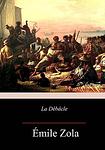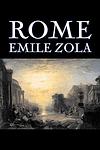Émile Zola
Émile Zola was a French novelist, playwright, journalist, and a major figure in the political liberalization of France and in the exoneration of the falsely accused and convicted army officer Alfred Dreyfus, which is now known as the Dreyfus Affair. Zola was a leading practitioner of the literary school of naturalism and played a significant role in the development of theatrical naturalism. He is best known for his Les Rougon-Macquart series, a panoramic study of the effects of heredity and environment on a family during the Second French Empire. His works had a profound influence on the literary world and are considered important contributions to modern literature.
Books
This list of books are ONLY the books that have been ranked on the lists that are aggregated on this site. This is not a comprehensive list of all books by this author.
-
1. Germinal
The novel is a bleak and realistic portrayal of coal miners' lives in 19th century France. The protagonist, a young man who starts work in a mine, becomes embroiled in the hardship and exploitation faced by the workers, leading to his involvement in a strike. The story explores themes of poverty, social injustice, and the struggle for workers' rights, while also providing a detailed depiction of mining life, from the dangerous work conditions to the close-knit communities.
-
2. Thérèse Raquin
"Thérèse Raquin" is a novel about a young woman who is unhappily married to her cousin, a sickly and selfish man. She embarks on a passionate and destructive affair with one of her husband's friends, leading to a series of tragic events. The novel explores themes of lust, guilt, and the psychological consequences of such immoral actions, set against the bleak backdrop of the Parisian underworld.
-
3. L'assommoir
The novel is a gritty portrayal of working-class life in 19th-century Paris, focusing on the struggles of Gervaise Macquart, a laundress who aspires to a better life. After her lover abandons her with two children, she marries a roofer, Coupeau, and they initially find happiness and modest prosperity. However, their lives spiral downward due to alcoholism, poverty, and the harsh realities of their social environment. The narrative delves into the impact of addiction on family dynamics and the broader community, painting a vivid and unflinching picture of the urban poor's descent into despair and degradation.
-
4. Nana
"Nana" is a novel that follows the life of a young woman in 19th century France who rises from the streets to become a high-profile courtesan. Her physical charm and manipulative nature allow her to maintain control over her high-status lovers, leading them to financial ruin and even death. The novel is a critique of the moral decay of the French society, highlighting the destructive power of lust and greed.
-
5. La Bête humaine
"La Bête humaine" is a psychological thriller set against the backdrop of the French railway system during the 19th century. The plot revolves around a railway worker who, despite being a seemingly ordinary man, harbors a dark, uncontrollable urge to kill. The narrative is a grim exploration of human nature, delving into themes of inherited violence, animalistic instincts, and the impact of industrialization on society. The novel is also filled with a variety of subplots involving jealousy, betrayal, and murder, all intricately tied to the characters' lives.
-
6. La Débâcle
The novel is a harrowing depiction of the Franco-Prussian War, particularly focusing on the catastrophic defeat of the French at the Battle of Sedan in 1870. It follows the experiences of a group of soldiers and civilians, illustrating the chaos and horror of war, as well as the societal and political turmoil that ensues. The narrative delves into the lives of its characters, exploring themes of fate, human suffering, and the disintegration of order, all set against the backdrop of a nation in the throes of defeat and revolution. Through vivid and unflinching realism, the book presents a critical examination of leadership, the futility of war, and the resilience of the human spirit amidst devastation.
-
7. Drunkard
This novel follows the tragic life of an alcoholic laundress in Paris and her abusive husband. The narrative explores the devastating effects of alcoholism and poverty on both the individual and their family. Despite the protagonist's ongoing struggle to maintain her dignity and protect her two children, her life spirals out of control due to her addiction, leading to a heartbreaking conclusion. The book is a vivid and stark portrayal of the harsh realities of life for the working class in 19th-century Paris.
-
8. L'argent
"L'argent" is a novel that delves into the complexities of the financial world in 19th-century Paris, focusing on the life of an ambitious man who becomes entangled in the speculative frenzy of the stock market. The narrative explores themes of greed, corruption, and the moral decay that often accompanies the pursuit of wealth. As the protagonist navigates through financial schemes and manipulations, the book provides a critical look at the banking system and the societal impacts of economic crises, ultimately portraying the dangerous consequences of unchecked financial speculation.
-
9. Au Bonheur Des Dames
The novel centers on the transformation of the Parisian retail world in the late 19th century, following the story of a young woman from the provinces who comes to Paris and finds work at a grand department store. The store, with its innovative marketing and sales tactics, represents the rise of capitalism and the modern consumer culture, dramatically altering the fabric of society. As the protagonist navigates the challenges of her new life, she witnesses the impact of the retail revolution on small businesses and the lives of the store's employees, all while exploring themes of ambition, love, and the relentless pursuit of progress.
-
10. The Earth
The book is a naturalistic novel that delves into the harsh realities of peasant life in 19th-century France. It portrays the struggles of the rural community through the lens of the Fouan family, who are grappling with inheritance disputes and the encroachment of modernity on traditional farming practices. The narrative exposes the brutality, greed, and sexual licentiousness that lurk beneath the veneer of pastoral simplicity, painting a grim picture of human nature and the social upheavals of the time. The novel's unflinching depiction of life's darker aspects is a testament to the author's commitment to exploring the human condition in its most raw and unvarnished form.









